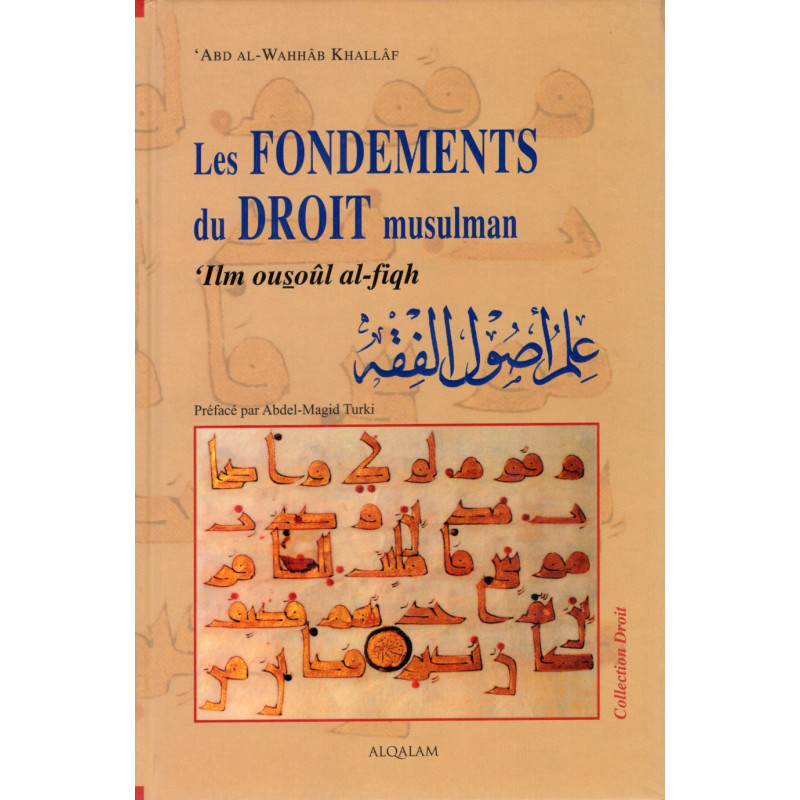


Promotions SANA: Jusqu’à -20%, Cliquez ici
Promotions SANA: Jusqu’à -20%, Cliquez ici
This work represents the only resource in French that explores in depth the basics of Muslim law, also called "ousoûl al-figh". Often seen as one of the most complex and sophisticated traditional Islamic disciplines, Muslim Law focuses on how religious rituals and laws are derived from the Quran and the sunnah, that is, the practices of Prophet.
In a communication to the Fifth International Congress of Arab and Islamic Studies, in Brussels in 1970, Robert Brunschvig, a universally recognized Islamologist, who died in 1990, underlined the interest, too often ignored, of this branch of legal-religious theory which is calls ousoûl al-fiqh. He pointed out that modern historians of Muslim law were far from having recognized the place and role due to it in reality. Today, the situation has not fundamentally changed. The specialists who were concerned to find a twin sister in other cultures, remained at the stage of comparative study which made them sense a certain resemblance between this or that of its elements with this or that correspondent of Byzantine law. or Hebrew. This book offers the only detailed presentation in French on the foundations of Muslim law (ousoûl al-figh). Often considered the most sophisticated and complicated of traditional Islamic disciplines, Muslim Law deals with how religious rituals and laws derive from the Quran and the Sunnah-precedent of the Prophet. The Revelation, which was brought to man to restore international unity and help him achieve sincere and just conduct in society as well as in his heart, must be interpreted in order to adapt it to any culture, without betraying his mind and his immutable dispositions. To achieve this, complementary sources with legal authority are recognized, such as consensus (ijma), analogical reasoning (qiyâs), general interest (maslaha) and usage ("ourf). This book addresses modern trends in theory of Muslim law, including those relating to the important concept of ijtihad, or individual effort, the mechanism by which jurists can arrive at new rules, or determine that old ones require adjustment. the principles and nature of this rich and varied legal tradition are properly understood, both by legislators and outside observers. Written as an academic book, this book avoids the use of unnecessary technical expressions and strives to use Western legal terms wherever possible, while remaining close to Arabic sources. Distinguished by its clarity and easy reading, it is an essential reference not only for students of Muslim law, but also for anyone who has an interest in Muslim civilization or is interested in comparative law.
'Abd al-Wahhab Khallaf (1888-1956) was a judge in the courts of Egypt in 1920, then director of mosques at the ministry of religious foundations in 1924 and inspector of courts in 1931. He was appointed professor at the Faculty of Law of Cairo University in 1934 and remained so until his retirement. He is the author of numerous publications.
Data sheet
Specific References
No customer reviews for the moment.